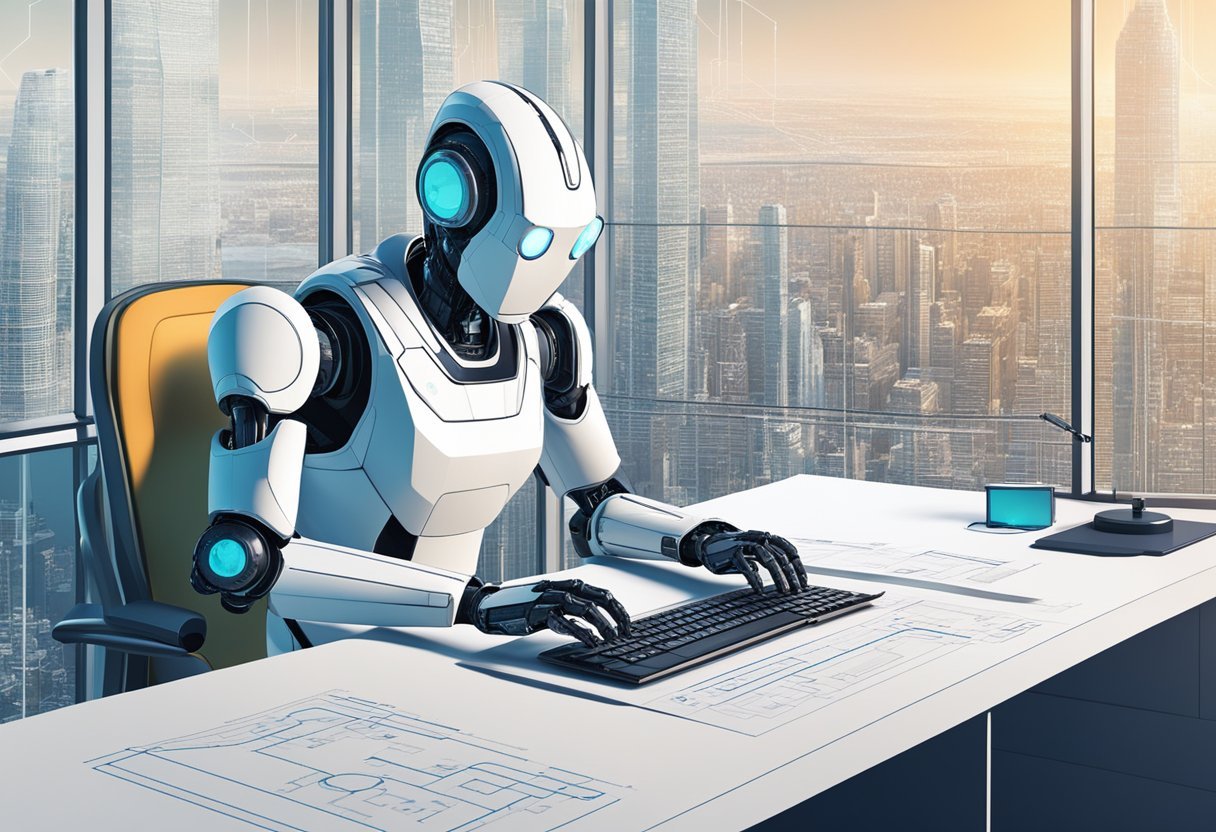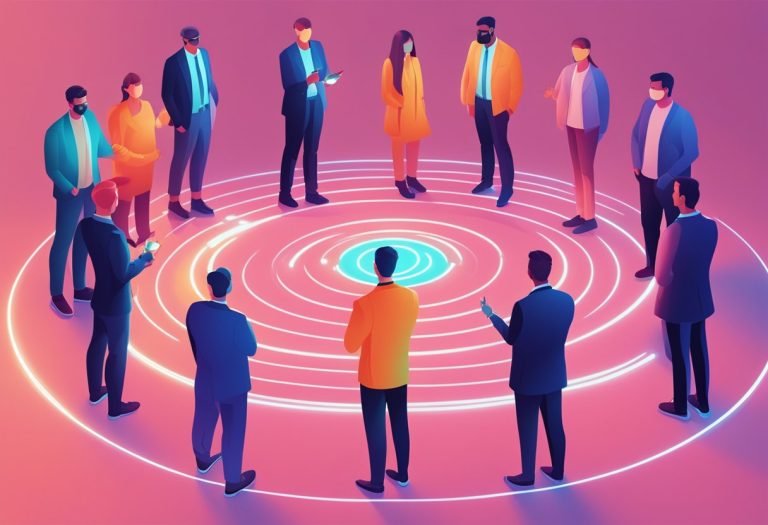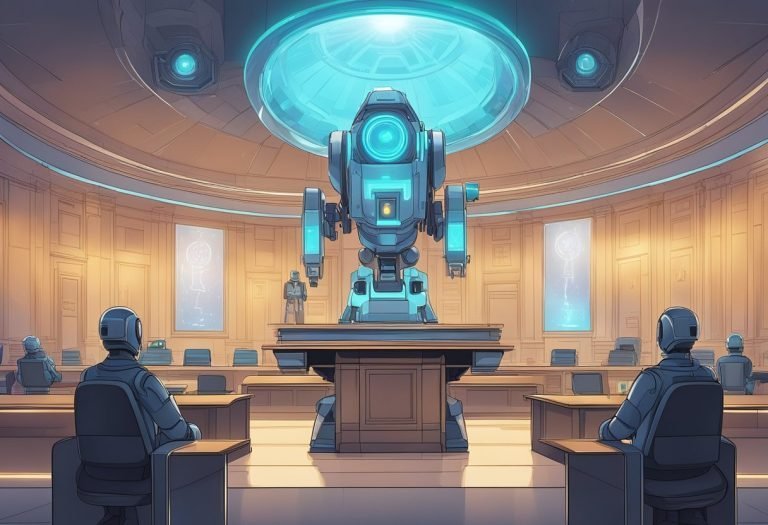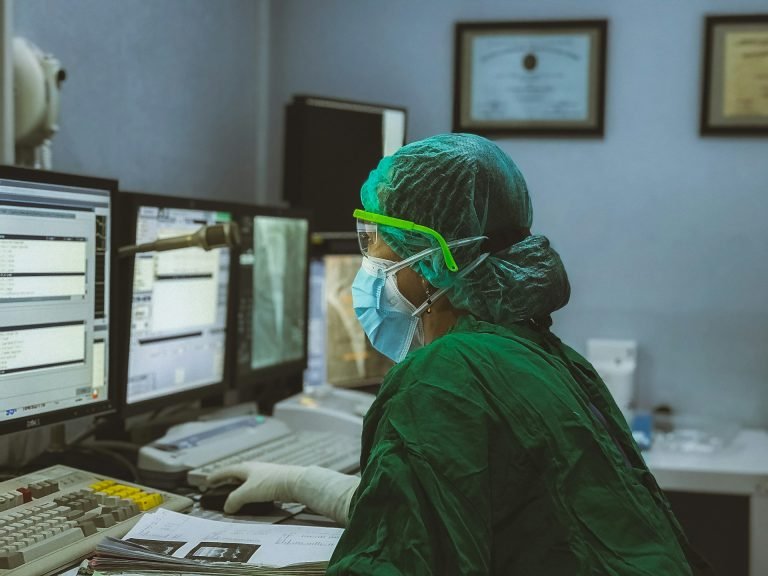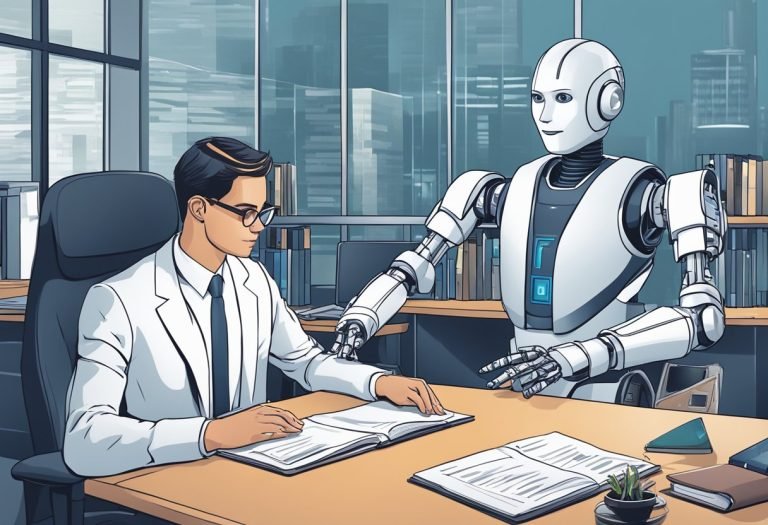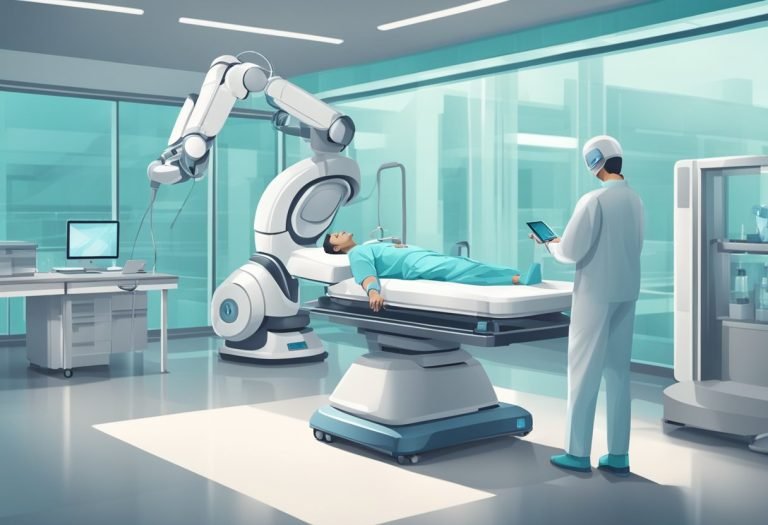Will AI Replace Software Engineers: Examining Future Impacts in Tech Industry
The integration of artificial intelligence into the tech industry has sparked widespread debate about the future roles of software engineers. AI is not expected to replace software engineers entirely, but rather to enhance their productivity and creativity. While AI can automate repetitive tasks and assist in debugging, it lacks the creative problem-solving skills that human engineers bring to the table.

In the evolving landscape of technology, AI serves as a tool for collaboration rather than competition. AI systems are designed to support software engineers by providing insights and streamlining processes. This partnership allows engineers to focus more on innovative tasks and less on mundane coding activities.
Though AI advancements are rapid, there are still boundaries it cannot cross, such as human intuition and creativity in engineering. The future job market will likely see software engineers and AI working side by side, optimizing how software is developed but not eliminating the need for skilled professionals.
Key Takeaways
- AI enhances but does not replace engineers.
- Engineers and AI will collaborate effectively.
- Human creativity remains a vital component.
The Role of Software Engineers

Software engineers are vital in creating and maintaining applications and systems. Their job goes beyond technical skills, involving critical thinking, problem-solving, and the ability to meet creative demands.
Core Responsibilities
Software engineers design, develop, and maintain software systems. They ensure these systems function correctly and meet user needs. This involves writing code, performing tests, and troubleshooting issues.
Working as a team is crucial. Engineers collaborate with other professionals like project managers and designers to complete projects. Regular updates and improvements are part of their daily tasks to meet evolving user requirements.
Documentation is another critical responsibility. Engineers maintain clear records of their work, ensuring future revisions are seamless. This involves writing user guides and system documentation that help in understanding how each part of the system functions.
Critical Thinking and Problem-Solving
Problem-solving is a major part of a software engineer’s role. They must identify and fix bugs efficiently, improving performance and user experience. This requires analytical skills to evaluate errors and find practical solutions.
Critical thinking helps engineers anticipate issues that might arise during development. By understanding complex systems, they predict potential problems and implement pre-emptive measures.
Decision-making is also key. Engineers must decide the best path forward when faced with multiple solutions. This includes selecting the right technologies and approaches that align with project goals, balancing time constraints and resources.
Creative and Innovative Requirements
Software engineering relies on creativity to build unique solutions. Engineers design original software features, ensuring they fulfill user demands while maintaining efficiency. This creative process requires an understanding of the latest technological trends.
Innovation is central to developing cutting-edge applications. Software engineers are often involved in brainstorming sessions to generate fresh ideas that push technology boundaries.
Beyond creativity, adaptability is essential. Engineers must customize solutions to fit diverse and changing needs. This includes adjusting to new tools and technologies, demonstrating flexibility in approach to meet the demands of evolving projects.
Advancements in AI

Recent advancements in AI are significantly transforming various industries, including software engineering. Machine learning has evolved rapidly, enabling AI systems to learn complex tasks. Natural language processing has reached new levels, allowing machines to understand and generate human language effectively. Additionally, the automation of repetitive tasks is making workflows more efficient, freeing up human expertise for more complex challenges.
Evolution of Machine Learning
Machine learning has developed into a core component of artificial intelligence. It now enables algorithms to adapt and improve from experience, much like the way humans learn.
AI systems leverage large datasets to recognize patterns and make predictions with increasing accuracy. This has widened the range of applications, from image and speech recognition to financial forecasting. These advancements are partly driven by improvements in neural networks and deep learning, which allow machines to handle more data and understand intricate relationships. As a result, machine learning continues to grow more robust, enabling it to take on tasks that were previously thought complex for machines.
Natural Language Processing Capabilities
Natural language processing (NLP) is a key area where AI has shown impressive progress. It allows machines to understand, interpret, and generate human language. This capability is crucial for developing applications like chatbots, virtual assistants, and language translation services.
Recent advancements have enabled AI to execute complex language-based tasks such as summarization and sentiment analysis with greater accuracy. Models like GPT-3 have demonstrated the ability to generate coherent text, engage in conversations, and even compose poetry. These abilities are not only transforming customer service but also aiding in content creation, driving efficiency, and enabling new ways of interacting with technology.
Automation of Repetitive Tasks
Automation of repetitive tasks is another significant advancement brought by AI. In software engineering, AI tools are increasingly used to automate mundane activities such as code testing, bug detection, and documentation. This enables developers to concentrate on more complex and creative aspects of their work.
Automation enhances productivity by reducing error rates and speeding up the development process. AI-powered systems can sift through large volumes of code, identifying potential issues more quickly than a human could. Moreover, the use of AI in automation facilitates continuous integration and deployment practices, ensuring software updates are both rapid and seamless.
Impact of AI on Software Development

AI is reshaping software development by offering tools that enhance productivity and accuracy. It simplifies tasks like code generation, predictive analytics for design, and debugging, thus allowing developers to focus on higher-level problem-solving.
Code Generation Tools
AI-powered code generation tools are transforming the way developers write code. These tools can automatically generate snippets, reducing the time spent on repetitive tasks. Features like auto-completion and error detection also enhance coding efficiency. Developers find these tools valuable for improving workflow and minimizing errors. This increases productivity and frees programmers to work on more complex aspects of a project. AI, therefore, plays a critical role in modern software development by assisting developers in code creation.
Predictive Analytics in Software Design
Through predictive analytics, AI can forecast project outcomes and aid in decision-making during the design phase. It processes large data sets to identify patterns and trends that human developers might miss. This technique helps in resource allocation, risk management, and requirement prioritization. The ability of AI to predict potential roadblocks allows for more efficient design processes. By leveraging data insights, development teams can optimize their design strategies and reduce costs and time spent on projects.
AI-assisted Debugging and Testing
AI enhances debugging and testing by identifying and fixing software defects more quickly and accurately. Automated testing frameworks powered by AI can simulate numerous environments and user interactions, uncovering potential issues before deployment. Tools utilizing AI are capable of learning from past errors, improving their efficiency over time. This advancement reduces manual testing efforts and leads to higher reliability in software products. AI-assisted debugging empowers developers to maintain high standards in product quality and performance while saving time and resources.
Collaboration Between AI and Engineers
AI and software engineers are joining forces in exciting ways. This collaboration allows engineers to use AI to handle repetitive tasks, enabling them to focus on creative solutions.
Human-AI Collaborative Models
Human-AI collaborative models allow engineers to work alongside AI systems effectively. These models blend human decision-making with AI’s data processing abilities. Pairing engineers with AI helps automate mundane tasks while maintaining human oversight for more critical decisions.
Platforms that integrate AI tools allow teams to share insights and ideas. Collaborative coding environments let AI suggest code improvements, which are then reviewed by engineers for accuracy. This approach leads to a high level of efficiency, where AI assists without fully taking control.
Agile methodologies incorporate AI to adjust project plans quickly based on data analysis. AI can evaluate code for errors, freeing engineers to tackle more innovative tasks. This combination maximizes productivity and minimizes errors.
Enhancing Creative Solutions
AI’s role in enhancing creative solutions is significant. Engineers use AI to brainstorm and develop innovative ideas. AI systems analyze vast amounts of data to identify trends and propose solutions, providing a rich source of inspiration for engineers. This synergy drives more nuanced and effective software products.
Design tools powered by AI aid engineers in visualizing complex concepts, turning abstract ideas into tangible designs. Engineers can experiment with different approaches while AI suggests potential improvements. These suggestions are assessed and modified by human expertise, ensuring the solutions are both technically sound and creatively ambitious.
Machine learning algorithms recognize patterns and predict outcomes, offering engineers new perspectives on problem-solving. By combining AI’s analytical capabilities with human intuition, teams can explore creative avenues previously unexplored. This leads to software that is not just functional but also innovative.
Limitations of AI in Engineering
AI technology has achieved significant advancements, yet it still faces challenges. These range from understanding complex contexts to making ethical decisions and ensuring dependability. Each of these areas highlights why AI cannot fully replace human engineers.
Understanding Context and Nuance
AI struggles with grasping context and nuance in complex engineering projects. Despite advancements, it lacks the ability to truly understand cultural contexts or read between the lines. For instance, while AI can perform tasks based on data, it often misses the subtleties that human software engineers can detect. This limitation affects how effectively AI can handle projects that require deep domain expertise.
Moreover, AI depends on pre-existing data. Without data that captures the nuance of a situation, its interpretations can be inaccurate. Human engineers excel in adapting to dynamic environments, which AI cannot replicate. This leads to challenges for AI in complex environments that need more than just number-crunching.
Ethical and Moral Decision-Making
AI lacks the capability for ethical and moral reasoning, which is critical in engineering. Engineers frequently face scenarios requiring judgment calls that consider broader ethical implications. AI, programmed to optimize specific outcomes, often fails to account for these nuanced decisions.
Ethical decisions in engineering, such as safety-critical systems, need more than just algorithmic efficiency. These decisions involve assessing potential impacts on society, an area where AI lacks insight. Human software engineers bring valuable perspective and discernment that AI cannot mimic.
AI Dependability and Trust Issues
AI’s dependability in engineering is still a concern. Errors and inconsistencies can arise, especially when AI tools are employed for complex tasks. This raises trust issues among engineers who rely on these tools for accuracy and reliability.
Even minor errors can have significant consequences in engineering projects. Human engineers are vital for checking AI-generated work to ensure it meets the necessary standards. While AI offers speed and efficiency, the need for human oversight is crucial to mitigate risks associated with its use.
The Future Job Market
Artificial intelligence is transforming software engineering, shaping new job roles and creating opportunities for professional growth. This evolution impacts job descriptions, skills development, and the emergence of new positions in AI.
Changing Job Descriptions
The roles of software engineers are evolving with the rise of AI. As automation becomes more prevalent, engineers find themselves focusing less on routine coding tasks and more on complex problem-solving.
Engineers are now expected to collaborate more closely with AI systems to optimize and enhance coding processes. Responsibilities may include overseeing AI-driven projects and ensuring the alignment of AI capabilities with business goals. Those in software engineering must stay adaptable, integrating AI tools into their workflows to enhance productivity and innovation.
The ability to manage AI systems effectively will become an increasingly valuable skill.
Upskilling and Reskilling Opportunities
With AI transforming the tech landscape, existing software engineers need to enhance their skills. Upskilling in areas like machine learning and data analytics can provide a competitive edge. Companies offer training programs to help employees adapt to new technologies, emphasizing the importance of continuous learning.
Online platforms and workshops offer targeted courses on AI and related technologies. Engineers are encouraged to participate in certification programs or attend industry conferences. By embracing these opportunities, professionals can expand their expertise and remain relevant in a rapidly changing job market.
Adapting to new tools and technologies will make engineers more versatile and able to meet future demands.
Emerging Roles in AI Development
New job roles are emerging within AI development, as the focus shifts towards creating and managing advanced systems. Machine learning engineers and AI specialists are in high demand, reflecting the growing need for expertise in these areas.
These roles require skills in designing, testing, and implementing AI solutions. Professionals in these positions work on developing algorithms, managing large datasets, and optimizing AI models for diverse applications. Engineers may also collaborate with research teams to push the boundaries of AI technology.
By engaging in these emerging roles, software professionals can contribute to innovative projects that drive the industry forward.
Strategies for Adaptation
As AI continues to evolve, software engineers should focus on staying current with new technologies and expanding their skills. This approach will help them remain valuable and relevant in the changing landscape.
Continual Professional Development
To keep up with AI advancements, continuous learning is essential for software engineers. They need to regularly update their skills through workshops, online courses, and certifications. Platforms like Coursera and edX offer specialized courses that cater to emerging trends in AI and software development.
Engaging in professional communities and attending industry conferences can also boost knowledge and understanding of the latest tools and practices. By participating in talks and networking, engineers gain insights into how AI is being integrated into different projects. This helps them stay informed about industry shifts and innovations.
Regularly reviewing industry journals, research papers, and tech blogs ensures engineers are aware of ongoing developments. They can also benefit from peer collaborations, working on open-source projects, and contributing to discussions in forums such as GitHub and Stack Overflow.
Cross-Disciplinary Expertise
Developing skills across multiple disciplines can enhance a software engineer’s adaptability. Combining software engineering know-how with fields like data science or user experience design can create new opportunities. For example, understanding AI algorithms and data analytics can help engineers work more effectively with AI technologies.
Encouraging cross-disciplinary collaborations at work can lead to innovative solutions and improved project outcomes. Exposure to different perspectives allows engineers to tackle complex problems more creatively. Knowledge in areas such as cybersecurity or business strategy can be a valuable asset, broadening an engineer’s scope and expertise.
Learning additional programming languages or software tools can also open doors to varied roles within tech teams. By diversifying their skill set, engineers enhance their versatility and increase their job prospects in an AI-driven future.
Conclusion
The role of artificial intelligence (AI) in software engineering is expanding. AI can handle repetitive tasks, which helps save time and boosts efficiency. It excels at tasks like code generation and bug detection.
Complementary Roles
AI and software engineers are expected to work together. Engineers will likely use AI tools to enhance productivity. They will focus on creative problem-solving and tasks that require human insight.
Some argue AI will bring major changes but not at the cost of replacing humans. Software engineers provide essential creativity and human context in project development.
Potential of AI
While AI is powerful, it lacks the nuanced understanding of complex problems that human engineers possess. Teams may experience a shift in responsibilities, with AI taking over more mechanical tasks.
Future Prospects
The future may see engineers and AI systems collaborating more closely. This partnership could lead to innovative solutions and improved project outcomes. Software engineers will continue to play a vital and dynamic role in the tech industry.
Real-World Impact
Industries are starting to adopt AI systems more widely. They recognize the benefits of having AI assist in routine operations. As this integration grows, the complementary nature of AI and human expertise will become more evident.
The evolution of this partnership is something to watch. It presents opportunities for both growth and adaptation in the software engineering field.

